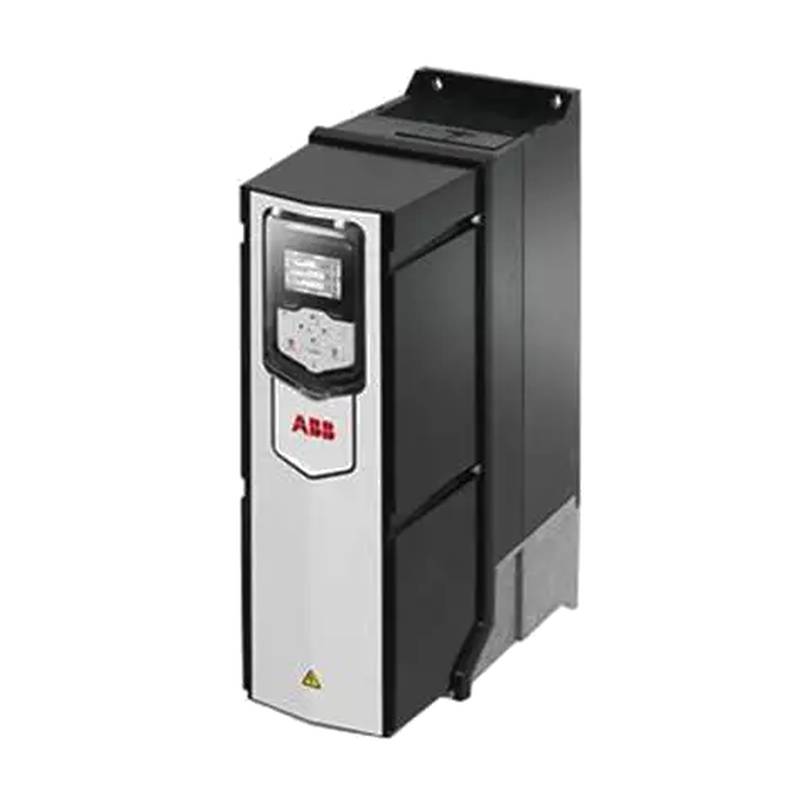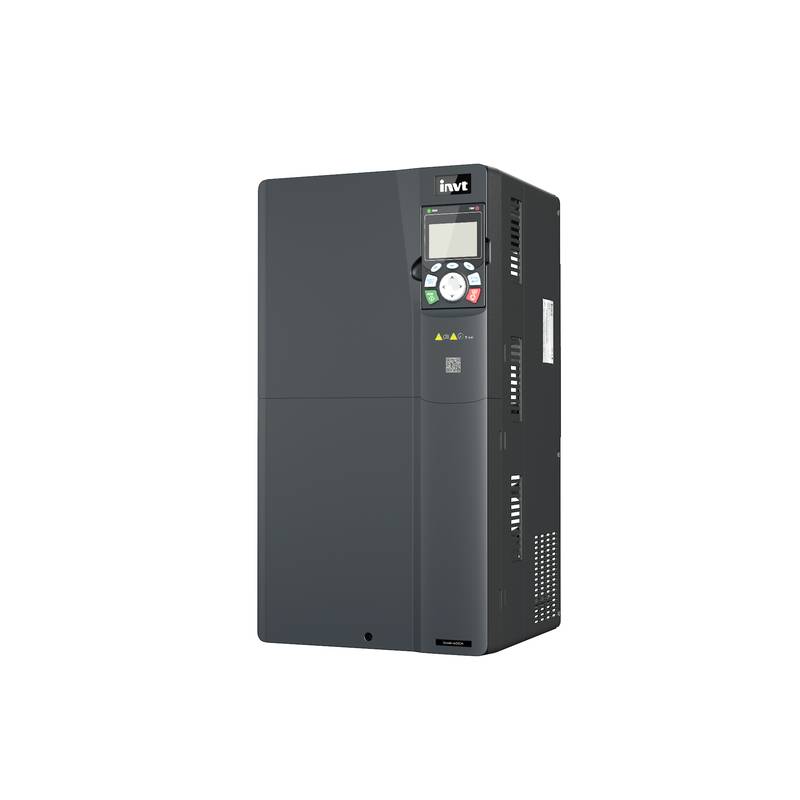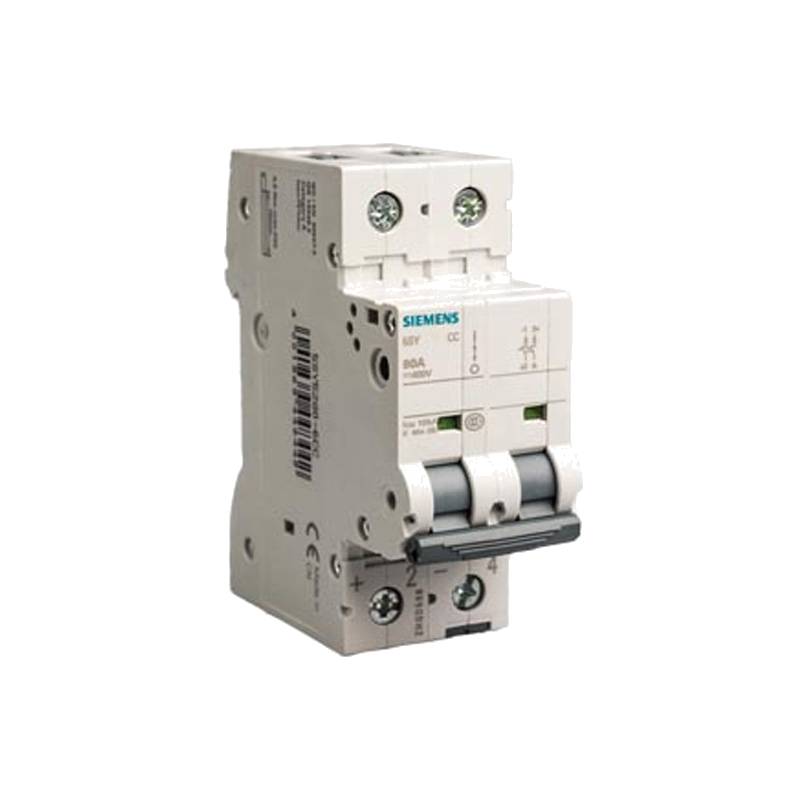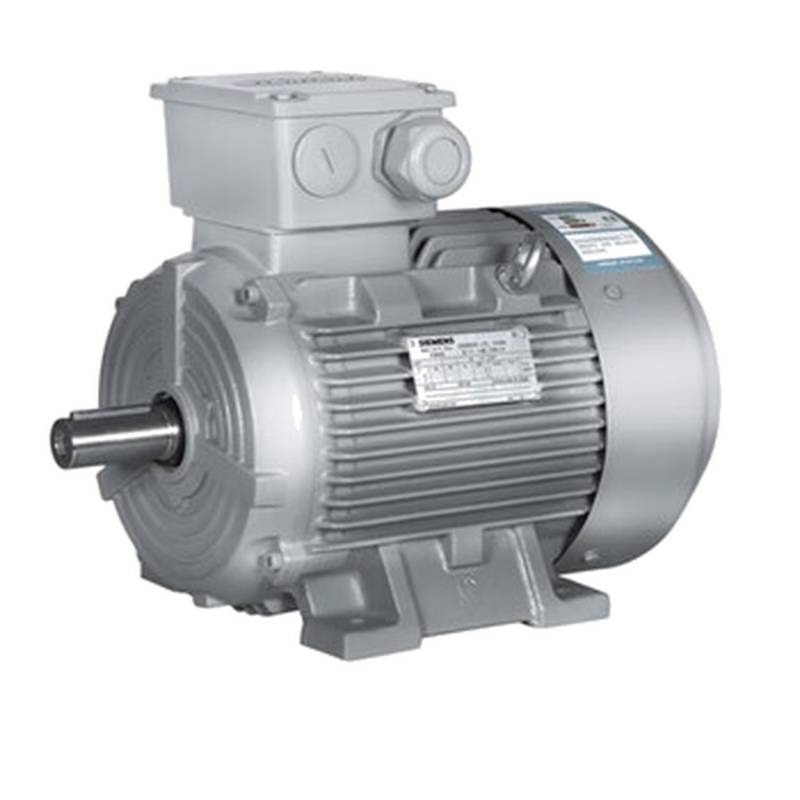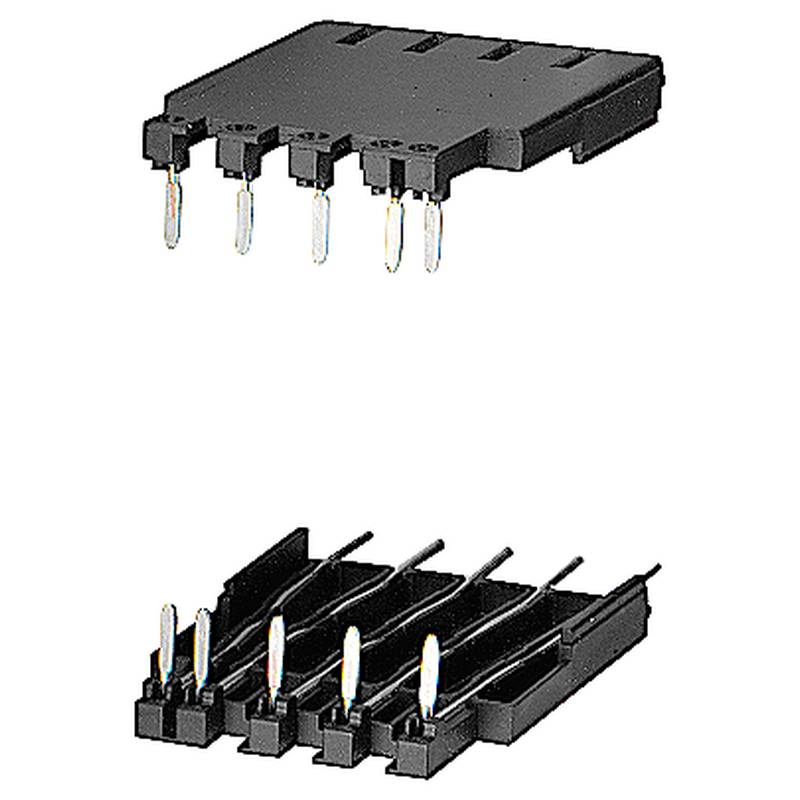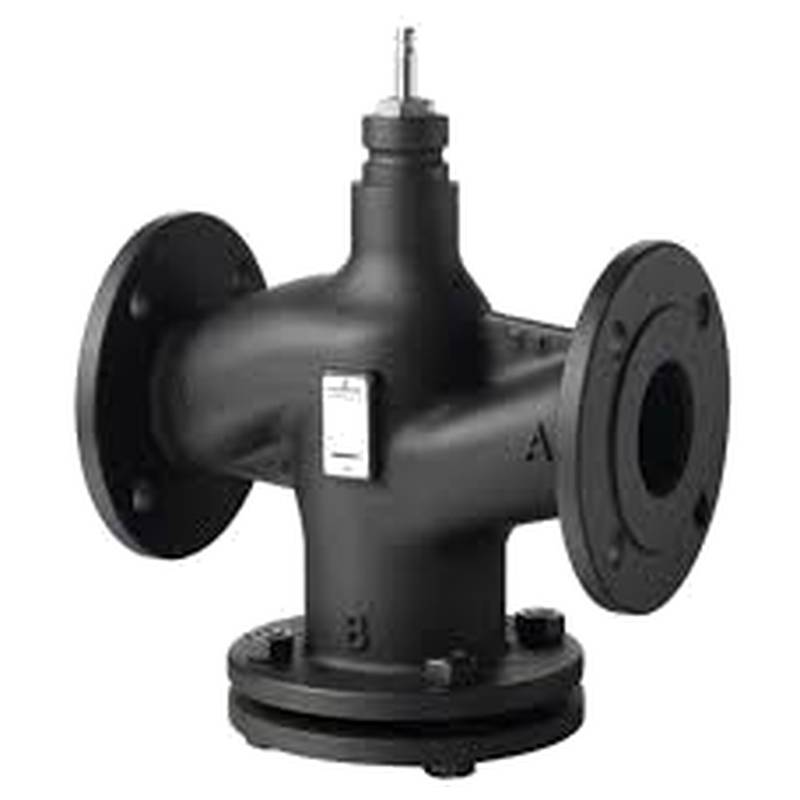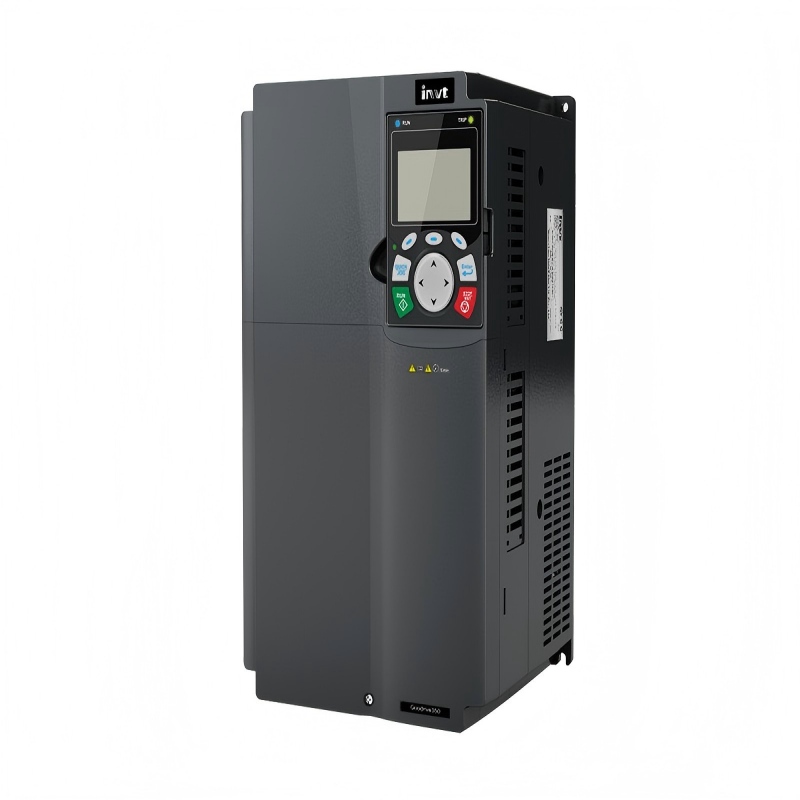
The ABB ACS880-01-169A-3 is a high-performance Variable Frequency Drive (VFD) designed for demanding industrial applications, offering robust motor control and enhanced operational efficiency. Built upon ABB's all-compatible drives architecture, this VFD provides exceptional compatibility, flexibility, and ease of use. Its compact, wall-mounted design simplifies installation and saves valuable space, while its advanced Direct Torque Control (DTC) technology ensures precise management of virtually all AC motor types, including permanent magnet and synchronous reluctance motors. The ACS880-01-169A-3 is engineered for reliability and longevity, featuring an extended maintenance interval of up to 9 years and robust construction suitable for harsh industrial environments.
Product Specifications
| Specification | Value |
| :--------------------- | :-------------------------------------- |
| Manufacturer | ABB |
| Model Number | ACS880-01-169A-3 |
| Type | Wall-mounted single drive |
| Rated Power (kW) | 90 kW |
| Rated Power (HP) | 125 HP (Light Duty), 100 HP (Heavy Duty) |
| Rated Output Current (A) | 169 A |
| Input Voltage (V) | 380-415 V (3-phase) |
| Output Voltage (V) | 0 - Input Voltage |
| Output Frequency (Hz) | 0 - 500 Hz |
| Apparent Power (kVA) | 117 kVA |
| Enclosure Rating | IP21 (Standard), IP55 (Optional) |
| Frame Size | R7 |
| Protection Rating | IP20 / IP21 / IP55 (depending on variant) |
, Short-Circuit Rating (kA) 65 kA
| Weight | Approx. 48.3 kg (106.5 lbs) |
| Dimensions (mm) | 880 (H) x 284 (W) x 365 (D) approx. |
| Operating Temperature | Up to 55°C ambient |
| DTC Control | Standard |
| Safety Features | Integrated Safety, STO standard |
Core Features & Market Positioning
The ABB ACS880-01-169A-3 distinguishes itself in the market through its inherent flexibility and comprehensive feature set. Its foundation on ABB's all-compatible drives architecture means seamless integration with a vast array of automation systems and components. The inclusion of Direct Torque Control (DTC) as standard is a significant differentiator, enabling precise and dynamic motor control for a wide range of applications and motor types, including advanced permanent magnet and synchronous reluctance motors, which are becoming increasingly important in energy-efficient applications. This positions the ACS880-01-169A-3 as a premium solution for users demanding high performance, accuracy, and adaptability. Furthermore, the integrated safety functions, including Safe Torque Off (STO), simplify system design and enhance operational safety, reducing the need for external safety components. The drive's robust construction and extended maintenance intervals contribute to a lower total cost of ownership, appealing to industries focused on reliability and reduced downtime.
Key Application Scenarios
Engineered for versatility, the ABB ACS880-01-169A-3 finds its place in a multitude of demanding industrial sectors. It is exceptionally well-suited for applications requiring precise speed, torque, and position control, such as cranes and hoists, conveyors and material handling systems, extruders, pumps and fans, and mixers. Industries benefiting from its robust performance include oil and gas, mining, metals processing, chemicals, cement production, pulp and paper manufacturing, and water and wastewater treatment. The drive's ability to handle diverse motor types and its advanced control capabilities make it an ideal choice for optimizing process efficiency, reducing energy consumption, and ensuring reliable operation in these critical sectors.
Practical System Integration Guidance
Integrating the ABB ACS880-01-169A-3 into existing systems is streamlined due to its compact, all-in-one design and ABB's emphasis on user-friendliness. Installation is typically wall-mounted, though cabinet-built options are available. Proper wiring is crucial for optimal performance and safety. For power wiring, it is recommended to use shielded VFD cables to minimize electromagnetic interference (EMI), especially in environments with high electrical noise. ABB recommends using cables rated for at least 75°C for higher thermal management capabilities. Grounding should be performed meticulously, connecting the drive's PE terminal to the system ground and ensuring conduits are bonded to the drive's conduit box and the distribution panel. For control wiring, refer to the provided manuals for specific terminal connections for analog and digital I/O, fieldbus communication modules, and encoder feedback. The intuitive control panel, featuring a USB port, facilitates easy parameter setting and firmware updates, with ABB offering PC tools for more complex programming and diagnostics. Before initial power-up, ensure all covers are securely in place and consider reforming DC link capacitors if the drive has been stored for over a year.
Operation and Risk Mitigation
Operating the ABB ACS880-01-169A-3 requires adherence to safety protocols to mitigate risks. The integrated safety features, such as Safe Torque Off (STO), are critical for preventing unexpected equipment startup during maintenance or emergencies. STO disengages the motor's torque without cutting power to the drive, offering a highly reliable safety mechanism. Users should consult the drive's manuals for detailed troubleshooting guidance and a comprehensive list of error and fault codes. Common issues can relate to power supply fluctuations, motor connection problems, or parameter misconfigurations. For instance, "Overcurrent" (OC) faults typically indicate the motor is drawing too much current, which could be due to excessive load, rapid acceleration, or a motor or drive malfunction. "Ground Fault" (GF) indicates a short to ground, requiring inspection of motor and drive wiring. "Overload" (OL) faults typically indicate the motor or drive is exceeding its rated capacity for an extended period. Proactive monitoring of drive parameters and regular maintenance, as per ABB's recommendations, are essential for preventing faults and ensuring safe, continuous operation.
Scalability & Long-Term Value
The ACS880-01-169A-3 is designed for long-term value and scalability, being part of ABB's widely adopted ACS880 series. Its "all-compatible" architecture ensures compatibility with a broad spectrum of ABB and third-party automation components, including various fieldbus protocols (e.g., Modbus RTU, Profibus DP, EtherNet/IP, Profinet) and I/O extension modules. This allows for easy expansion and integration into increasingly sophisticated control systems. The availability of numerous options and accessories enables users to customize the drive to meet evolving application requirements without needing to replace the entire unit. Furthermore, ABB's commitment to IIoT and digital solutions means that drives like the ACS880-01-169A-3 can be integrated into smart factory environments, leveraging data for predictive maintenance, process optimization, and enhanced operational visibility. The drive's robust design and ABB's reputation for product longevity further contribute to its long-term investment value.
---
Frequently Asked Questions (FAQs)
What is the primary function of the ABB ACS880-01-169A-3 VFD?
This VFD's core purpose is to control the speed and torque of AC motors with high precision. It achieves this by varying the frequency and voltage supplied to the motor.
The drive enables significant energy savings by matching motor speed to the actual load requirements. It also facilitates advanced motor control for complex applications.
Its Direct Torque Control (DTC) technology ensures robust performance across various motor types, enhancing process efficiency and productivity.
What are the key technical specifications I should know for the ABB ACS880-01-169A-3?
Key specifications include a 90 kW rated power and a 169 A output current. It operates on a 380-415 V, 3-phase input voltage.
The drive offers a wide output frequency range of 0-500 Hz and features an IP21 enclosure rating as standard. Its frame size is R7.
It also boasts an impressive short-circuit current rating of 65 kA, underscoring its robust safety and durability.
What types of motors can the ABB ACS880-01-169A-3 control?
The ACS880-01-169A-3 is highly versatile and can control virtually any AC motor type. This includes standard induction motors.
It excels with permanent magnet motors and synchronous reluctance motors, utilizing its Direct Torque Control (DTC) for optimal performance.
This wide compatibility ensures flexibility for various applications and motor choices.
What are the main advantages of using the ABB ACS880-01-169A-3 over other VFDs?
Its primary advantage is the integrated Direct Torque Control (DTC) for precise motor management. The "all-compatible" architecture ensures broad system integration.
The drive features built-in safety functions like STO, simplifying system design and enhancing operator safety. Its compact, wall-mounted form factor saves installation space.
ABB's reputation for reliability, extended maintenance intervals, and robust construction offer long-term value and reduced total cost of ownership.
What are common applications for the ABB ACS880-01-169A-3?
This VFD is ideal for demanding applications like cranes, conveyors, and material handling systems. It's also used in pumps, fans, mixers, and extruders.
Industries such as oil and gas, mining, metals, chemicals, and pulp and paper frequently utilize this drive. Water and wastewater treatment plants also benefit from its performance.
Its precise control capabilities are valuable in manufacturing, processing, and other automation-intensive sectors.
How is the ABB ACS880-01-169A-3 installed, and what are the wiring considerations?
Installation is typically wall-mounted, with options for cabinet-building. Shielded VFD cables are recommended for power wiring to mitigate EMI.
Proper grounding is essential; connect the drive's PE terminal to system ground and bond conduits. Use cables rated for at least 75°C for better thermal management.
Refer to manuals for specific control wiring and always ensure power is disconnected and capacitors are discharged before working on the drive.
What safety features does the ABB ACS880-01-169A-3 include?
The drive comes standard with integrated safety functions, most notably Safe Torque Off (STO). STO reliably prevents unexpected motor startup during maintenance.
This built-in safety feature simplifies panel design by reducing the need for external safety relays. It enhances personnel safety during critical operations.
Users should always follow safety guidelines and consult the manual for proper activation and use of safety features.
How does the ABB ACS880-01-169A-3 contribute to energy efficiency?
By precisely controlling motor speed, the drive ensures that the motor only consumes the energy it needs for the current task. This eliminates energy waste common with fixed-speed operation.
Its advanced control algorithms, including energy optimizer functions, provide real-time feedback and optimization for reduced power consumption.
The ability to precisely match motor performance to load demands across various applications leads to significant operational cost savings over time.
What troubleshooting steps can be taken for common issues with the ACS880-01-169A-3?
Common issues include overcurrent, ground faults, and overload faults. Consult the drive's manual for specific error codes and diagnostic information.
Overcurrent issues might stem from excessive load or rapid acceleration, while ground faults indicate wiring problems. Overloads suggest the drive or motor is strained beyond its limits.
Checking parameter settings, motor connections, and ensuring adequate ventilation are crucial first steps in troubleshooting.
How scalable is the ABB ACS880-01-169A-3 for future expansions or integration with IIoT?
The ACS880-01-169A-3 is highly scalable due to its "all-compatible" architecture and support for numerous fieldbus protocols. This allows easy integration with advanced control systems.
It supports various options and accessories for expanding functionality as application needs change. This modular approach ensures long-term adaptability.
The drive can be integrated into IIoT platforms for data collection, predictive maintenance, and remote monitoring, aligning with Industry 4.0 initiatives.














